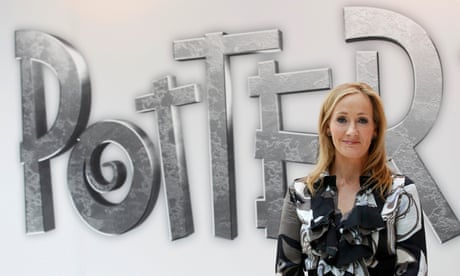5 Things to do when you have too many ideas and never finish anything
'People will forgive you for being wrong, but they will never forgive you for being right - especially if events prove you right while proving them wrong.' Thomas Sowell
Search This Blog
Showing posts with label try. Show all posts
Showing posts with label try. Show all posts
Sunday, 24 February 2019
Monday, 28 March 2016
The only way to achieve anything is to become comfortable with rejection.

‘JK Rowling tweeted two rejection letters that she’d received in response to manuscripts written under the pen name Robert Galbraith.’ Photograph: Suzanne Plunkett/REUTERS
Linda Blair in The Guardian
There’s a poster on the wall of the gym I use, a place frequented by many aspiring British athletes. It says simply: “You lose 100% of the chances you don’t take.”
No one likes to be rejected, to take a chance, to put in huge effort only to be rebuffed. But if you want to succeed at anything in life, you have to put yourself forward. You have to take the chance that you’ll be rejected. There’s no choice – what it says on that poster is absolutely right. The alternative is to be 100% certain you’ll never realise your dreams.

Rejection is more the norm than the exception for authors, as JK Rowling reminded everyone last week, when she tweeted two rejection letters that she’d received – after her success with Harry Potter – in response to manuscripts written under the pen name Robert Galbraith. The bestselling author Joanne Harris responded: “I got so many rejections for Chocolat that I made a sculpture.” They’re far from the only well-known authors to have been knocked back – James Joyce, George Orwell and John le Carré all suffered a number of rejections before their manuscripts were finally accepted. And yet, despite the hurt of rejection and the work involved in rewriting, everyone knows their work is better as a result.
Why do we find rejection so upsetting? After all, it’s almost never life-threatening to be rejected. The reason lies in our interdependence.
Human beings need one another in order to thrive, particularly at the beginning of our lives. During that period of development, if no one cares about a baby enough to offer loving care and attention, that baby will die. That’s why it feels so important to be approved of, to be liked and accepted by others – at certain times it’s the only way we can survive. You can see now why the more you value the approval and opinion of the person who’s judging you, the more upset you’ll be if they reject you. This also explains why rejection hurts more when your offerings are personal, more an expression of who you are or hope to be rather than something you’ve simply been asked to throw together, for example an assignment for a school subject you don’t enjoy or a requirement at work.
It’s one thing to understand why you feel bad when you’ve been rejected. But why stop there? Why not take things a step further? Instead of thinking about rejection as something you hope to avoid, see if you can make it work for you rather than distress you. When you do this, rejection will actually help you create something even better than the offering that’s been cast aside. Here’s how.
Start by learning not to take a rejection personally. Instead of saying, “What’s wrong with me?”, step back. See if you can figure out what might be lacking in what you’ve created, or in the way you’ve gone about trying to achieve your dream. The artist Dexter Dalwood, speaking recently to creative arts students at their graduation ceremony, warned his audience: “If you want your ideas to succeed, be prepared to be rejected. Often. It comes with the territory.”
Rejection is part of the process in manufacturing as well as in the creative arts.James Dyson, a man who changed our lives in a number of ways, including how we clean our homes and dry our hands, says he finds rejection helpful. His plan to create a bagless vacuum cleaner took 5,127 modifications, following numerous rejections from retailers. He told the BBC in an interview just after the launch of a more recent invention, the Airblade Tap, that “failure is the best medicine – as long as you learn something”.
Learning through failure is how rejection helps. It can spur you on to do it again, do it better. Anders Ericsson, a professor at the University of Colorado, observed the practice habits of violin students in Berlin from the age of five until they reached adulthood. He found that the most powerful predictor of success, of whether students became “elite” violinists, was how many hours of practice they put in, how determined they were to improve. The author Malcolm Gladwell popularised this idea, which has become known as the “10,000-hour rule”. It seems that it takes approximately 10,000 hours of dedication, of being criticised and reacting constructively to that criticism, to succeed and achieve true excellence.
The patients I see who are struggling with rejection often ask me when they should give up, at what point they should accept the rejections and stop trying. My answer is never. As long as you have a dream, something you believe in and wish to achieve, keep going.
A rejection doesn’t mean you failed. It means you tried. Try again.
Subscribe to:
Comments (Atom)